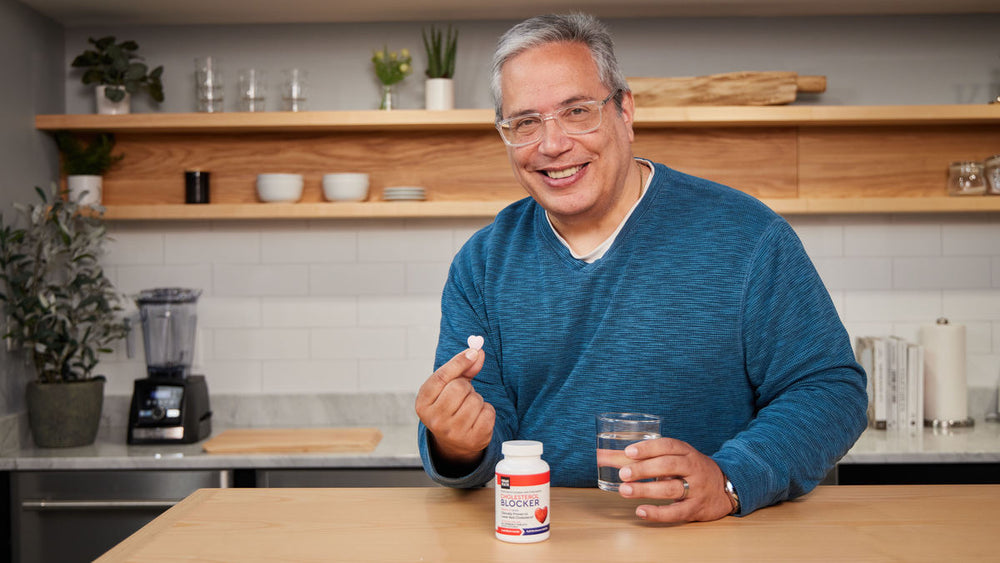
Matters Of The Heart
The Heart
The heart beats approximately 100,000 times in a day and 35 million times in a year. The heart is located in the center of the chest, working when the rest of the body is at rest. The heart is responsible for so much more than pumping blood. The heart produces oxytocin, known as the ‚love‚ or ‚bonding hormone. In addition, the heart contains over 40,000 neurons; this gives the heart the ability to independently sense, process information, make decisions, and demonstrate a type of learning and memory. Research has also revealed that the heart is a hormonal gland, manufacturing and secreting numerous hormones and neurotransmitters that profoundly affect the brain and body.1
The heart ‚ Brain connection
Did you know that the heart sends more signals to the brain than the brain sends to the heart? Did you know how your emotions affect your heart's rhythms? For example, when you feel angry, sad, anxious, etc, your heart rhythm becomes incoherent; it sends a signal to the brain by way of the vagus nerve, which then triggers a stress response in the brain. In this state, it is difficult for us to learn, remember or make effective decisions. On the other hand, when you feel love, compassion, gratitude, or joy, it sends a coherent signal to the brain, which allows us to feel peace, and harmony and to be able to enter a deeper meditative state. 2
Heart‚ Gut Connection
Having a healthy microbiome also appears to help you to have a healthy heart. The microbes in our intestines affect many systems of the body, one of which is our cardiovascular system. These gut microbes turn out a substance called metabolites which appear to influence the risk of heart disease, among other conditions.3 Human chronic heart failure patients have also been shown to have reduced gut bacterial diversity and lower abundance of key bacteria. 4
Short-chain fatty acids
(SCFAs) are metabolites produced by the gut microbiota as a byproduct of the fermentation of dietary fiber. SCFAs are subsequently absorbed into the bloodstream, where they can interact with proteins to influence physiology. These short-chain fatty acids seem to play a role in regulating blood pressure.5
Gut Dysbiosis
Gut dysbiosis may be a precursor to cardiovascular disease. It has been found that heart failure patients have reduced bacterial diversity and are lacking critical bacterial strains. Studies also indicate that SIBO (small bacterial overgrowth) is also a risk factor. SIBO causes inflammation which is a significant risk factor for developing cardiovascular disease along with a leaky gut. One study found that patients with small intestinal bacterial overgrowth (SIBO) were more likely to have elevated arterial stiffness.6 Both probiotics and prebiotics may be of benefit to modulate cardiovascular risk.
Gut Inflammations and Cardiovascular Disease
Gut microbes are key mediators of inflammatory signaling. A recent study pinpointed the microbiome as a key player in age-associated inflammation. This age-associated dysbiosis and the accompanying inflammation may in part explain the age-associated increase in the incidence of cardiovascular disease Both probiotics (healthy bacteria) and prebiotics (substrates that feed specific bacteria) can be used as means to modulate cardiovascular risk.7
Pathogenic Bacteria and Cardiovascular Disease
Studies indicate that people that have experienced heart failure had massive quantities of pathogenic bacteria, includingCampylobacter spp.,Shigella spp.,Salmonella spp.,Yersinia enterocolitica, andCandida spp.In addition, bacterial DNA can be identified in more than 50 percent of all plaques. Some studies have found that eradication ofH. pyloridecreases risk factors associated with atherosclerosis, such as oxidative stress, C-reactive protein, body fat, and blood pressure.8
Cholesterol and Cardiovascular Disease, the Real Deal
We hear cholesterol and we think of the good and the bad, but what does it all really mean? The fact is cholesterol plays a very important role in the body! Cholesterol is a fatty substance, produced by the liver, which is used to help perform thousands of bodily functions. Your body need cholesterol to make hormones, cell membranes and brain cells. Without enough cholesterol testosterone levels will drop. 9 What should we be concerned about? Cholesterol that becomes rancid. This is called, Oxidized cholesterol. Oxidized cholesterol is a rancid fat that causes inflammation and fat or plaque deposition in the artery walls. The real danger occurs when LDL particles become oxidized and start the buildup of plaque or cholesterol deposits in your arteries.10
Plant sterols to Combat Oxidized Cholesterol
Because they have a similar structure to cholesterol, plant stanols and sterolswork to reduce the absorption of cholesterol in the gut so more is lost in the feces. 11 Get added help blocking the absorption of cholesterol from Cholesterol Blocker. Colorful fruits and vegetables to fight free radicals Rancid or oxidized cholesterol results from oxidative stress and free radicals, eating a diet rich in colorful fruits and vegetables provides high levels of antioxidant activity for protection from damage of free radicals.12 Get added antioxidant activity from Spectrum Vibrance.
Fat and Heart disease
New studies and research indicate that there is no link between healthy fat and heart disease. The fat that is dangerous is trans-fat. 13
Healthy Fat
Avocados, nuts, seeds, olive oil, and fish oil all may reduce your risk of heart disease and improve your cholesterol along with eggs and the saturated fat from coconut oil or butter. New studies reviewing all the research on fat and heart disease found no link, even with saturated fat. The only truly bad fat is trans-fat, such as baked goods, shortening, fried foods, and margarine. 14
Balance blood sugar
Eating quality fat like nuts, avocados, seeds, and coconut butter, and good quality protein with every meal will be helpful in balancing your blood sugar, balancing your insulin, shutting off the fat-production factory in your liver, and supporting healthy cholesterol levels. 15
Get your flavonoids
Research from the American heart association found that high concentrations of Flavonoids may aid in maintaining healthy blood pressure levels through their positive influence on the gut microbiome. Flavonoids are found naturally in plant foods, but especially in berries, apples, pears, tea, chocolate, and wine.16
"The human heart feels things the eyes cannot see, and knows what the mind cannot understand." Robert Valett
- https://www.heartmath.com/science/
- https://www.heartmath.com/science/
- https://www.health.harvard.edu/heart-health/healthy-gut-healthy-heart
- https://www.ncbi.nlm.nih.gov/pmc/articles/PMC5542738/pdf/EHF2-4-282.pdf
- https://www.ncbi.nlm.nih.gov/pmc/articles/PMC5584783/
- https://kresserinstitute.com/gut-heart-connection/
- https://kresserinstitute.com/gut-heart-connection/
- https://pubmed.ncbi.nlm.nih.gov/26682791/
- https://drhyman.com/wp-content/uploads/2018/02/The-Cholesterol-Solution_ebook_022318.pdf?v=1.1
- https://drhyman.com/wp-content/uploads/2018/02/The-Cholesterol-Solution_ebook_022318.pdf?v=1.1
- https://pubmed.ncbi.nlm.nih.gov/18937893/
- https://drhyman.com/wp-content/uploads/2018/02/The-Cholesterol-Solution_ebook_022318.pdf?v=1.1
- https://www.ncbi.nlm.nih.gov/pmc/articles/PMC4532752/
- https://drhyman.com/wp-content/uploads/2018/02/The-Cholesterol-Solution_ebook_022318.pdf?v=1.1
- https://drhyman.com/wp-content/uploads/2018/02/The-Cholesterol-Solution_ebook_022318.pdf?v=1.1
- https://www.mindbodygreen.com/articles/link-between-flavonoids-gut-and-blood-pressure?mbg_mcid=777:6126b55d8839fa2bcc66f362:ot:60008616b818ce33c303bc98:1&mbg_hash=dd0a96e13f5391dbf4a0b11f0b0f7f69&utm_source=mbg&utm_medium=email&utm_campaign=daily_v2_20210826

Why Trust Vibrant Health?
At Vibrant Health, we’ve been pioneers in science-backed nutrition for over 30 years, formulating transparently sourced superfood supplements that prioritize real results. Our blog is an extension of that commitment—a trusted resource for expert-driven wellness insights.
Every article is crafted with nutrition expertise, backed by the latest scientific research, and reviewed by our in-house Certified Health Coaches and Product Educators. We break down complex health topics into practical, actionable advice—helping you make informed choices about superfoods, supplementation, and holistic wellness.As a brand that has earned thousands of 5-star reviews and the trust of health professionals, we ensure that our content reflects the same quality, integrity, and transparency as our products.
Your wellness journey deserves accurate, credible, and empowering guidance. That’s why Vibrant Health’s blog is here—to help you live a healthier, more vibrant life, backed by real expertise


